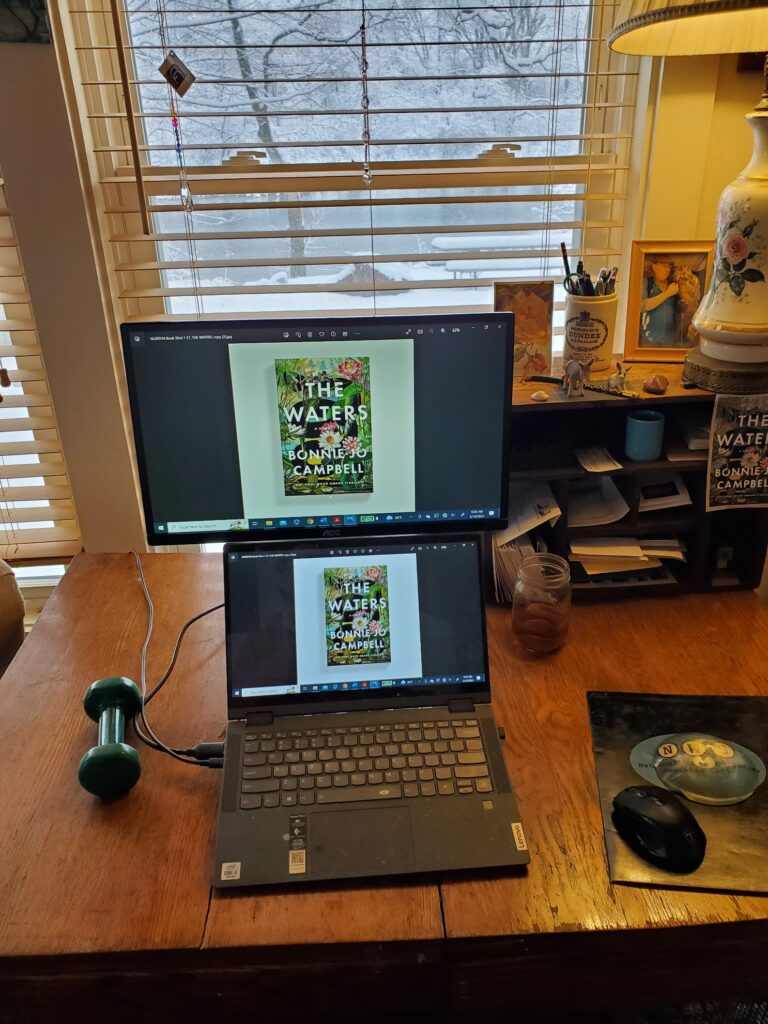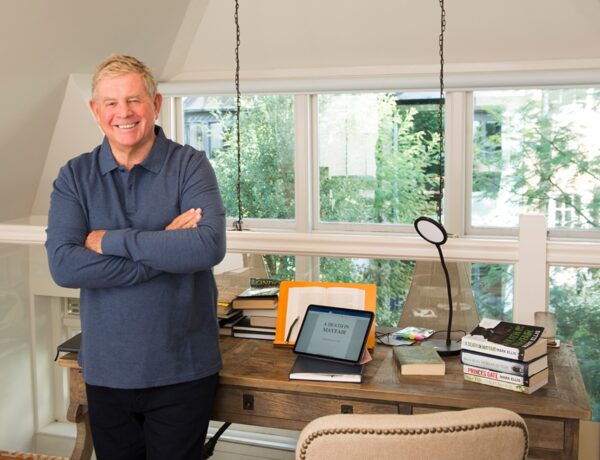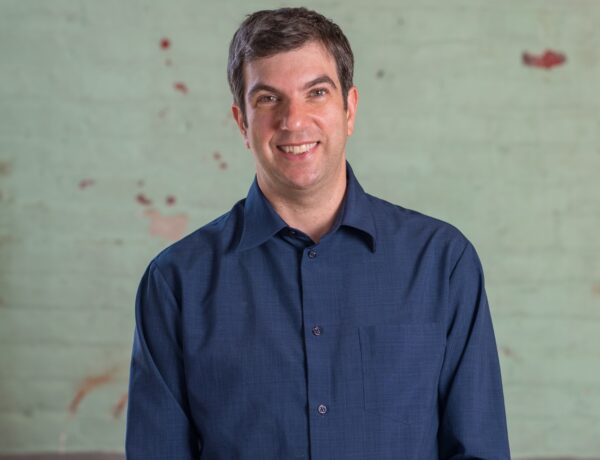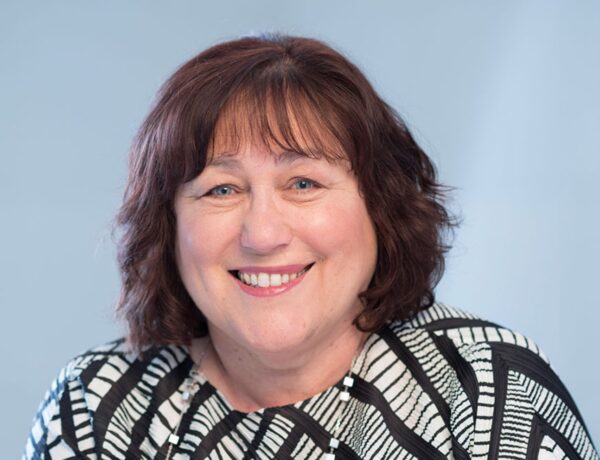Bonnie Jo Campbell is an award-winning author who grew up on a small Michigan farm. She has a diverse background, having hitchhiked across the U.S. and Canada, traveled with the Ringling Bros and Barnum & Bailey Circus, and organized and led adventure tours in Russia and the Baltics.
Her collection Women and Other Animals won the AWP prize for short fiction, and her novel Q Road investigates the impact of development on a rural community. Her critically-acclaimed short fiction collection American Salvage was a finalist for the 2009 National Book Award in Fiction.
Looking for inspiration to help you achieve your writing goals? Subscribe to our newsletter for exclusive insights into the routines, habits, and techniques of some of the most celebrated authors in history.
Hi Bonnie, welcome to Famous Writing Routines! Your background is quite unique, with a variety of experiences from farming to hitchhiking to leading adventure tours. How have these experiences influenced your writing and characters?
When I was young, I thought I wanted to be a writer, but I was restless, and I figured I needed to have adventures in order to have something to write about. So I hitchhiked and joined the circus and rode my bicycle everywhere I could. Then when I started writing, I found myself writing about home, the place I had been trying to escape with all my adventures. Getting out in the world widened my horizons, I think, and gave me a better perspective of the people back home, and so I am able to write about them with more wisdom and understanding—or so I hope.
Your stories often explore the lives of rural communities and women. What draws you to this subject matter?
I guess I’m writing what I know. Or I’m writing my own soul. I grew up in a small community with a lot of space around me and a lot of animals to love when the people didn’t satisfy me. It may sound like a cliché, but I am a country girl at heart, comfortable in a quiet space where life moves slowly and change is kept in check. I’m also interested in the plight of rural people, and we are in a time in history when a chasm has opened up between urban folks and rural folks, so I’m happy to take it as my job to keep introducing my urban readers to the country people I know.
Your short fiction collection Women and Other Animals won the AWP Prize and American Salvage was a finalist for the National Book Award. Can you talk about your process for crafting such powerful and award-winning stories?
In order to write a story, I have to have a compelling character in a very difficult situation. Most of my short stories arise out of my rumination about real-life situations I’ve observed; often I have worried myself sleepless about what was happening to somebody, and that would be a jumping off place for a story. Or else I would think about an old family story that I had heard about over and over until I understood something new about it. And if I write about an old story, it can be new again.
As president of Goulash Tours Inc., you have organized and led adventure tours in different parts of the world. How does travel and experiencing different cultures inform your writing?
I’m not sure how much international travel has affected my writing, but by learning about new cultures, a gal like me gets a different perspective on her own culture. Maybe getting far away allowed me to see how strange my own world truly was. I can remember being in Boston after college and telling my new friends about my family butchering a drowned cow with a chainsaw, and I realized how strange they thought that was. Maybe that was an interesting topic for a story, I thought.
Do you struggle to stay focused while writing? You’re not alone! That’s why Famous Writing Routines recommends Freedom – the ultimate app and website blocker for Mac, Windows, Android, iOS, and Chrome. With over 2.5 million users, Freedom helps writers stay on task and avoid distractions. Get started for free today and reclaim your productivity!
You have been practicing Koburyu kobudo weapons training. How does this physical practice intersect with your writing and creative process?
I studied karate for six years and kobudo for ten years, and I really enjoyed getting in touch with my ferocious, physically powerful self. In our martial arts class, we were not never taught to be aggressive, but we learned how to respond to aggression, and that is something that I needed. In my family, I always tried to be the peacemaker, and that is good and useful—somebody has to do it when passions flare—but it meant that I had to swallow my own forcefulness and pride a lot. I had never hit anyone in my life before studying martial arts, and it felt kind of good to learn how to do that.
What does a typical writing day look like for you?
An ideal writing day starts with me getting up at around 7:30, sitting down to write at 8 and then staying near my desk until 3pm (with a few breaks for eating at 10am and doing some yoga stretches and poses, possibly writing in my journal). Then I head out into the day or do some reading, etc. Often I get called away early to put out a fire somewhere (often something demands my immediate attention) or to go to an appointment—once you get to a certain age, there are more appointments than you would have expected.
If you could have a conversation with any author throughout history about their writing routine and creative process, who would that be and why?
I would very much like to talk to Flannery O’Connor, to ask her how she came up with her strange and wonderful stories. However, I would be a little afraid of her—she could be tough, I think. Those stories of hers are jagged bolts of lightning, and I would like to know if they emanated from her soul or if they burst straight out of the bowels of the earth and merely passed through her on their way into the world.
I’d love to know about the books you’re reading at the moment. What have been some of your favorite recent reads?
Just last night I finished Rebecca Makkai’s I Have Some Questions for You. It’s about solving a crime and trying to find the truth and trying free an innocent man, but it’s also about violence against women and about friendship and growing up and about being female and being human.
Loved Percival Everett’s Trees, found myself laughing at terrible injustice—go figure. Also, Demon Copperhead knocked my socks off; I am so glad that Barbara Kingsolver is writing in this world.
I recently read Jane Smiley’s two recent books and they were a whole lot of fun: Perestroika in Paris, about a racehorse and some other animals living in a park in Paris; A Dangerous Business, a historical and literary murder mystery and sleuthing story featuring two clever prostitutes, one who is a worldly-beyond-her-years mixed-race lesbian abolitionist.
As a writing teacher at Pacific University, what advice would you give to aspiring writers?
As a writing teacher, I tell all my students, graduate and undergraduate, to choose their subject matter carefully. You should write about the things you can’t stop thinking about, the things you don’t want to stop thinking about, things you are obsessed with. Writing a good story, even a short story, takes a lot of time, and you want to be working with characters and settings and situations that mean a lot to you so that you will be able to stick it out until the story is finished.
What does your current writing workspace look like?
My writing space is a crooked table, a little bent in the middle. I sit facing the Kalamazoo River, which has a swift current but is not very deep. I hook my laptop to a bigger screen, which mostly blocks my view of the river. o my right is a bookshelf for easy retrieval. I have a few trinkets on my desk, including a rattlesnake bracelet that Diane Seuss gave me while I was writing The Waters, my forthcoming novel, which features a rattlesnake. I have two sun chimes, one a gift from a writer Dawn Newton, the other a gift from my neighbor, Michelle. I have an old-lady type lamp that my friend Mary Szpur gave me. I also have a small light box that I often employ to ward off depression. Under my desk is a heated foot pad in case my toes get cold.

Affiliate disclaimer: Some links on this website are affiliate links. We may earn a small commission if you make a purchase through these links, but only promote products we truly believe in. We disclose affiliate links and give honest reviews.



No Comments